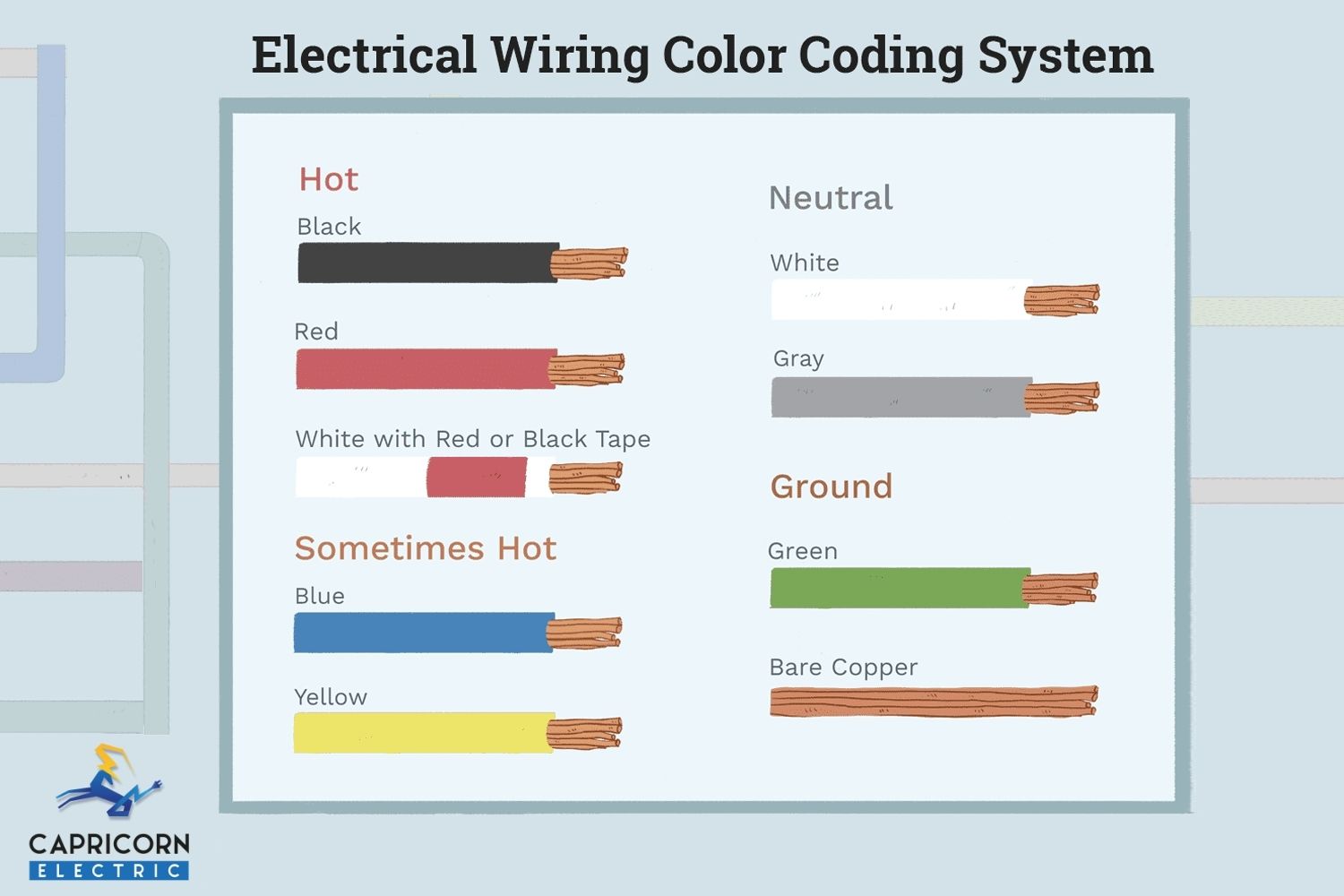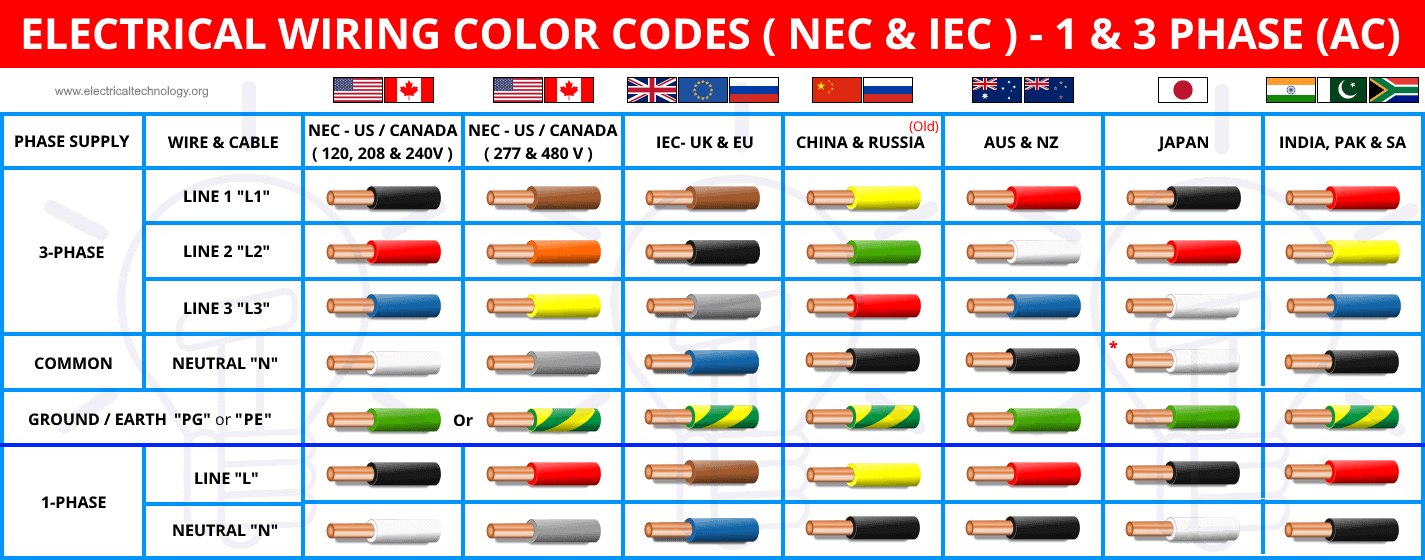Wonderful Info About What Is The Wiring Standard

Rj45 Wiring Standards For
Decoding the Mystery
1. Why Should I Even Care About Wiring Standards?
Ever wondered why your electronics work consistently, even when you plug them in across different buildings or even countries? The answer, in large part, lies in wiring standards. Think of them as a universal language for electricity, ensuring everyone's on the same page (or circuit board, in this case). Without them, it would be electrical chaos! Imagine trying to plug your phone charger into a wall socket and having it well, let's just say sparks wouldn't be a good sign.
Wiring standards are essentially a set of agreed-upon best practices for electrical installations. They cover everything from the types of wires used to the way circuits are designed and installed. These standards aren't just suggestions; in many places, they're legally binding requirements designed to protect people and property. So, understanding them isn't just a nerdy pursuit it's a matter of safety and compliance.
These standards cover a wide range of electrical installations, spanning from residential and commercial structures to industrial equipment and telecommunications systems. Whether it's the gauge of wire used for your kitchen lighting or the configuration of data cables in a server room, wiring standards provide precise guidelines to ensure things run smoothly and, most importantly, safely.
Ignoring wiring standards is like ignoring the rules of the road. You might get away with it for a while, but eventually, you're likely to run into trouble. Poorly wired connections can lead to all sorts of problems, from flickering lights and tripped circuit breakers to, in the worst-case scenarios, electrical fires. Adhering to wiring standards can also boost energy efficiency and prevent equipment malfunctions, which saves you money in the long run.

Electrical Wiring Color Code Basics You Should Know Capricorn Electric
Diving Deeper
2. Different Standards for Different Needs
Now that we've established the importance of wiring standards, let's take a quick look at some of the most common ones you might come across. Keep in mind that the specific standards that apply to you will depend on your location and the type of electrical work you're doing.
In North America, the National Electrical Code (NEC) is the gold standard, published by the National Fire Protection Association (NFPA). It's updated every three years to keep pace with technological advancements and emerging safety concerns. The NEC is a comprehensive document covering everything from residential wiring to industrial installations, and it's widely adopted by states and local jurisdictions.
Across the pond, in Europe, the International Electrotechnical Commission (IEC) sets the standards. IEC standards are recognized globally and provide a framework for electrical safety and performance. Many countries adopt IEC standards directly or adapt them to their own national regulations. While there are overlaps, some subtle but important differences exist between IEC and NEC standards, largely stemming from variations in voltage and frequency used.
Besides the NEC and IEC, there are other specialized wiring standards for particular applications, such as telecommunications cabling (TIA/EIA standards) and data networks (IEEE standards). These standards ensure compatibility and interoperability between different devices and systems. So, whether you're wiring a home theater system or setting up a corporate network, there's a wiring standard to guide you.

Essential Elements of a Wiring Standard
3. Beyond Just Wire Colors
Wiring standards cover a wide spectrum of critical aspects of electrical installations, and it's much more than just wire colors. These standards define the permissible types of wires and cables, their insulation ratings, and proper methods for joining and terminating them. They also specify minimum wire sizes for different circuits to ensure adequate current-carrying capacity and minimize voltage drop.
Furthermore, these standards outline requirements for overcurrent protection, such as circuit breakers and fuses, to safeguard against short circuits and overloads. They dictate how electrical equipment must be grounded to prevent electrical shock hazards. They address the need for proper ventilation and cooling of electrical enclosures to prevent overheating.
Moreover, wiring standards specify the proper methods for installing wiring in various types of buildings and environments. They provide guidelines for running wires through walls, ceilings, and floors, as well as requirements for protecting wires from physical damage and environmental factors such as moisture and corrosion. These standards also cover the proper use of conduits and raceways to protect wiring and organize cable runs.
Finally, wiring standards address the specific requirements for special types of electrical equipment, such as lighting fixtures, appliances, and motors. They cover the proper methods for connecting these devices to the electrical system and ensuring they operate safely and reliably. In essence, wiring standards act as the bedrock of safe and efficient electrical installations, ensuring that everything from the power outlet in your wall to the complex machinery in a factory operates as intended.

Electrical Wiring Color Codes For AC DC NEC IEC, 54 OFF
DIY vs. Calling in the Pros
4. Knowing Your Limits (and the Law!)
So, you've got a wiring project in mind. Maybe it's installing a new light fixture or adding an outlet. But before you grab your tools and dive in, it's essential to consider whether it's a job you can handle safely and legally. While some minor electrical tasks might be within the scope of a handy homeowner, many others require the expertise of a licensed electrician.
First, let's talk about safety. Electricity is nothing to mess with. If you're not comfortable working with live wires or don't have a thorough understanding of electrical circuits, it's best to leave the work to a professional. A mistake can result in electrical shock, burns, or even death. Don't be a statistic; prioritize your well-being. Even seemingly small tasks can turn disastrous in the hands of an inexperienced person.
Beyond safety, there's also the issue of compliance with local building codes and regulations. Many jurisdictions require electrical work to be performed by licensed electricians and inspected by local authorities. Doing electrical work without the proper permits can result in fines, penalties, and even legal action. Moreover, if the work isn't done correctly, it can void your homeowner's insurance policy, leaving you financially liable for any damages caused by electrical problems.
So, how do you decide when to call in the pros? As a general rule, if the project involves working with circuit breakers, electrical panels, or main service lines, it's best to hire a licensed electrician. Also, any work that requires a permit should be handled by a qualified professional. And, of course, if you're ever unsure about your ability to handle a project safely, don't hesitate to seek the advice of an electrician. A little bit of prevention is worth a whole lot of trouble and financial costs later on.

FAQ
5. Your Wiring Questions Answered
Let's tackle some frequently asked questions about wiring standards to clear up any lingering confusion.
6. Question 1
Ignoring wiring standards can lead to a multitude of problems, ranging from minor inconveniences to serious safety hazards. These could include flickering lights, overloaded circuits, frequent tripping of circuit breakers, or even electrical fires. Furthermore, if your electrical work isn't up to code, it can void your insurance and lead to fines.
7. Question 2
While there's some degree of harmonization, wiring standards do vary from region to region. North America predominantly uses the NEC, while Europe relies on IEC standards. Other countries may have their own national electrical codes or adopt international standards with local modifications. It's crucial to adhere to the specific standards that apply in your area.
8. Question 3
Wiring standards are regularly revised and updated to keep pace with technological advancements and emerging safety concerns. For instance, the NEC is updated every three years. Staying informed about the latest revisions is essential for electrical professionals to ensure their work is up to code.
